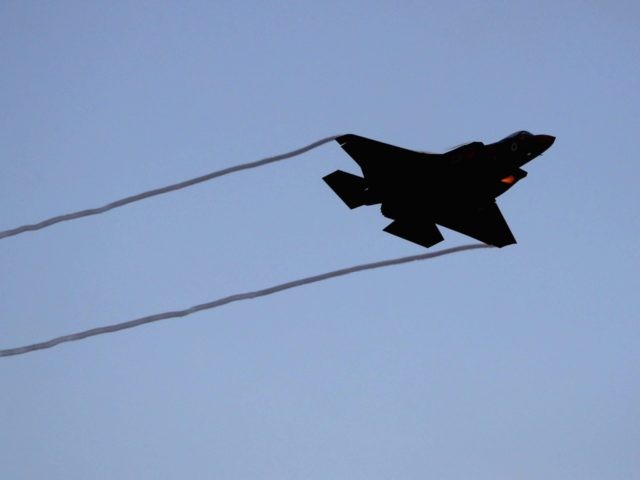Israel has reportedly flown a modified version of the F-35 to Iran and back, circling major cities and military bases and taking surveillance photographs without being detected by Iranian radar or intercepted by Russian missiles.
That is the story that has been circulating throughout the Middle East for the past year. No one is certain whether it is true, but it has begun to appear in Western sources, especially since Iran recently fired the head of its air force.
The Israeli version of the F-35, known as the “Adir,” is reportedly the first version of the American-made Joint Strike Fighter that has ever been deployed in combat. But it may have already had a bigger impact in a non-combat role.
In an opinion article published at CNBC earlier this month, “The F-35 has already freaked out Iran and changed everything in the Middle East,” political analyst Jake Novak noted (original links):
[I]t was late summer 2015 when reports in the Israeli news media surfaced about how Israelis working on F-35 prototypes had managed to double the jet’s flight and stealth capacity. It wasn’t lost on anyone that the extension meant Israeli Air Force pilots could use the F-35 to fly from Israel to Tehran and back without detection — and without having to refuel at U.S. air bases in Saudi Arabia or Iraq.
…
In July 2018, a Kuwaiti newspaper reported that Israel had flown a test mission of at least three F-35 jets to Tehran and back from an airbase near Tel Aviv. While never confirmed publicly, a good number of military and political leaders in the region believed and still believe the story. The long-rumored threat the F-35 posed to Iran now seemed like a reality.
The National Interest, reporting the same story, noted that Israeli Prime Minister Benjamin Netanyahu warned Iran earlier this month that Israel’s F-35 was capable of reaching “anywhere in the Middle East.” Now, thanks to Israeli engineers, it may be able to do so without needing American assistance to re-fuel.
The best part of the story is that Russia is suspected of having given Israel the “secret code” that would allow it to evade Russian radar in Iran.
Though Russia is viewed as an Iranian ally, there are reasons for Russia to help Israel. As much as Vladimir Putin enjoys disrupting U.S. hegemony in the Middle East and keeping Israel on its toes, he does not want Iran to go rogue. Letting the Iranians know that they cannot stop an Israeli attack — while discouraging Israel publicly from launching one — suits Russia perfectly.
Regardless, even if Russia did not help, and even if the story is not true, and the Iranian air force commander was fired for other reasons, the rumor is useful. It reinforces the impression in the region that Iran is no longer the “strong horse.”
Not only has the regime been weakened by sanctions that have made it difficult for Tehran to pay its soldiers abroad, but now the Israelis — and the Americans, presumably — are thought to know everything they would need to know to launch a successful attack.
To the extent that advanced Russian missiles can help defend Iran, they depend on Putin — and Iran cannot know if Putin will not cut a side deal.
The result is that the U.S. may have already won a war with Iran without firing a shot. Looking beyond the clashes in the Strait of Hormuz, and almost comical displays of Iranian “power” — dinky speedboats and clumsy commandoes — the regime may actually be defenseless. Better yet, others believe it to be.
That creates a situation in which Iran may be more open to negotiations — and real concessions — than ever before. And — best of all — its own people know the regime is weaker than ever.
Joel B. Pollak is Senior Editor-at-Large at Breitbart News. He earned an A.B. in Social Studies and Environmental Science and Public Policy from Harvard College, and a J.D. from Harvard Law School. He is a winner of the 2018 Robert Novak Journalism Alumni Fellowship. He is also the co-author of How Trump Won: The Inside Story of a Revolution, which is available from Regnery. Follow him on Twitter at @joelpollak.

COMMENTS
Please let us know if you're having issues with commenting.